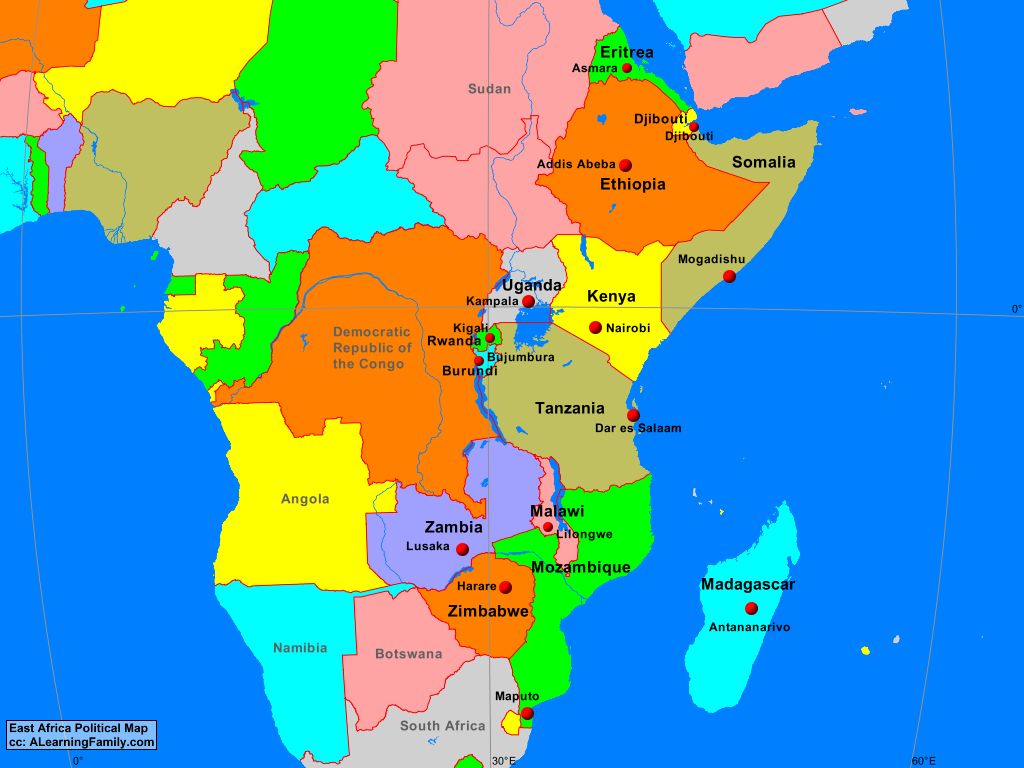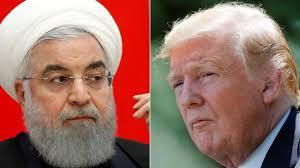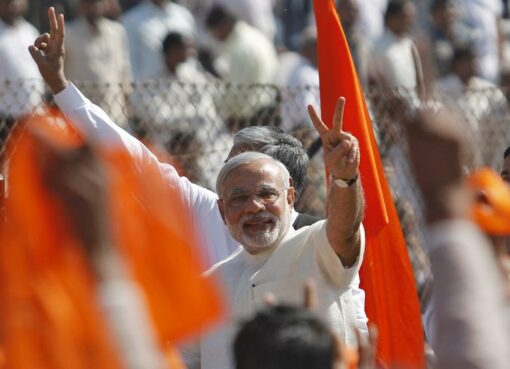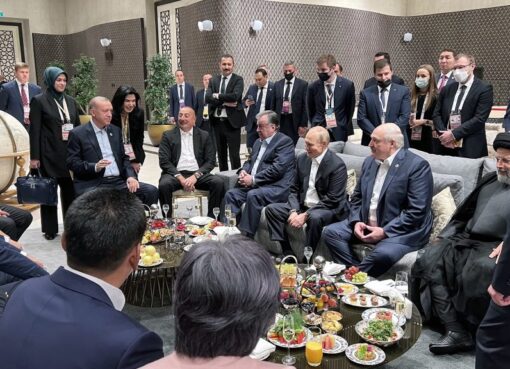Internecine clashes, maritime disputes and terrorist violence continued to be the hallmark of recent developments in East Africa. However, most countries are looking progressive as they are able to contain and manage negative consequences of these seemingly unending problems. Added to the list is Africa’s debt crisis precipitated by China’s lending practices.
Africa’s Debt
Africa’s excessive debt burden has created ripples through the continent and will be one of the main agenda items of the Tokyo International Conference on African Development later this month. China’s lending practices, which is the main cause of the debt burden, are expected to be debated during the conference to be held between August 28-30 in Yokohama city. Leaders from 54 African countries and international organisations are expected to attend. Prime Minister Shinzo Abe is proposing to announce a series of measures to help African countries with fiscal consolidation.
Several countries including Congo, Ethiopia, Zambia, Zimbabwe etc., have either got their Chinese debts re-structured or in the process of doing it. Meanwhile, China Everbright Bank, one of the largest investment arms of China, has placed Zimbabwe on a sanctions list. Ten other African countries are also similarly blacklisted. These include Sudan, South Sudan, DRC, Burundi, Liberia, Central Africa Republic (CAR), Libya, Somalia and Ivory Coast.
Political and Security Scenario – Somalia
From political and security point of view, Somalia, located on the Horn of Africa, is perhaps the worst affected being torn between conflicting interests of its neighbours and the Gulf Sheikhdoms. Its loosely held federal states are trying to shake free from central control to conduct their affairs independently. The resulting unstable conditions have proven to be a rich breeding ground for rapacious Islamist terror groups.
Somalia’s maritime border dispute with neighbouring Kenya is coming up for a hearing at the International Court of Justice (ICJ) on September 19. Mogadishu accuses Kenya of encroaching on its 100,000 square kilometre territory which is known to be rich in oil and gas deposits. Kenya has sought help of other influential countries to pressure Somalia to withdraw the case, without much success. With the advent of oil and gas companies, backed by their Governments, the issue is getting more complicated. The Arab League has already warned Kenya to stop interfering in Somalia’s waters.
Kenya’s stakes are high. If it loses the case, it will be landlocked, complicating its security and business arrangements, according to experts. Kenya has thus launched an all-effort campaign for support to win a non-permanent seat of the UN Security Council and use the status to influence the boundary outcome. According to diplomatic sources, battle lines are already drawn with China, Russia, and UK, along with the Gulf states, backing Somalia, while France and the US are supportive of the Kenyan stand.
The GCC conflict between Qatar on one side and Saudi Arabia and the UAE on the other is also playing up for influence in Somalia and other African countries. According to some reports, the Emir of Qatar, Sheikh Tamim, is believed to be supplying their armies with armoured vehicles and other materials to cut down their dependency on Saudi Arabia.
The New York Times recently reported alleging Qatar’s role in a terrorist bomb attack in Bosaso city, the commercial and economic hub of the Somalia’s federal state of Puntland. The regional government has called for an investigation into the Qatar’s role in the May 12 attack, which was claimed by an IS-affiliated group. The Times report revealed an audio recording of a cell phone conversation of a businessman close to the Emir of Qatar with its Ambassador to Somalia saying that the bombing was carried out to advance Qatar’s interests in the country and drive out the UAE. P&O Ports, a subsidiary of the Dubai-based DP World – one of the world’s largest port operators – won a 30-year concession in 2017 worth $336m (Pounds 260m) to develop and manage the Bosaso port.
Notwithstanding these conflicting political interests, the national government and regional administrations have been battling to defeat Islamist terrorist forces across the country. Such national resolve, backed by the UN and neighbouring countries, can be witnessed in the most terror-affected state of Jubbaland. The state is seen as Kenya’s buffer against Somali militant group, al-Shabaab. Kenya and Ethiopia, therefore, have high stakes for peace and stability in Jubbaland, which has close ties with them, though clan connections.
So, all eyes are on the region’s presidential election scheduled for August 19. Sheikh Ahmed Islam Madobe, leader of the Ras Kamboni Brigade, a local militia group opposed al-Shabaab, is strong contender for the post. He ran a previous government, supported by Kenya and Ethiopia as part of the African Union Mission in Somalia (Amisom), that eliminated al-Shabaab from most of the vulnerable Kismayu region. His other contenders are Abdinasir Seraar, a former Ras Kamboni Brigade comrade and former Aviation and Transport minister Mohamed Omar. The latter is said to be the favourite of Somalia’s Federal Government as it seeks to take control of federal states.
Mogadishu agrees with Jubbaland on the main concern of resurgence of al-Shabaab hence the need for deployment of Kenyan and Ethiopian forces as part of Amisom for security, but likes the defense duties to be gradually passed over to the Somali National Army. The two sides also are alive on the economic prospects of the region and as a result, they along with the European Union launched last year an inclusive local economic development program to prepare the area for foreign investments.
Ethiopia’s Civil wars
Ethiopian ruling coalition has now announced to hold national elections next year keeping aside all speculations of it being postponed over security problems emanating from a failed coup in June in the north Amhara region and an increase in ethnic violence across the country, which led to displacement of 2.4 million people. Dozens killed in the southern Sidama region as it prepared to declare itself a federal state on July 19. The Sidama are Ethiopia’s fifth biggest ethnic group, making up four per cent of the population, who demanded their own province like other four bigger communities have under the country’s ethnically based federal system. A referendum promised for the purpose could not be conducted due to various technical reasons and it was agreed to delay it for some time. Those who did not agree went on a rampage.
The country has seen a series of political and economic reforms under Prime Minister Abiy Ahmed which gave new freedoms to rival factions that are now emboldened to use violence seeking redressal of their grievances. Ethiopia is Africa’s second most populous country. With main line political opposition groups too are keen to avoid any delays in election schedule, the ruling coalition is confident to go ahead with the elections.
Ethiopia has also faced a set back with much applauded peace process with Eritrea losing steam. Many of the border crossings are shut down again in recent days and much anticipated trade deals and access to Eritrea’s ports remained unfulfilled.
New hope in Sudan
Sudan finally appears to be returning to normalcy with the main opposition coalition and ruling military council signing a final power-sharing agreement on August 17 paving the way for a transitional government. The agreement appears have to wider acceptance with many regional and international dignitaries like Ethiopian Prime Minister Abiy and South Sudan President Salva Kiir attending the signing ceremony.
Peace returns to Mozambique
The Southeastern nation of Mozambique too witnessed its historical moment with the Frelimo Government and ex-rebel group Renamo signing a peace deal on August 6 aimed at ending years of conflict. The deal comes just two months before general elections to be held on October 15. The two sides had a fragile peace pact agreed in 1992 which was broken off in 2013 following a military raid on a Renamo’s camp. Experts opine that the latest peace accord has better chances of success as it satisfies most demands of the Renamo party for political inclusion and control over the areas they dominate. It is now recognized as the country’s main opposition party, allowing it to compete for provincial governorships and prove their prowess in governance. The process of disarmament and registration of Renamo fighters is, however, slow but expected to pick up after elections. Skeptics have their own doubts, though.
Meanwhile, Islamist insurgency is gaining greater foothold in the impoverished north where more than 250 people fell victims to terror since 2017. “Poverty is the fuel of the present violence in northern Mozambique,” said Eleanor Beevor, a research analyst at the London-based International Institute for Strategic Studies. However, the recent efforts to develop its huge coal and natural gas deposits hold a promise of greater distribution of wealth and growth in the poorer regions.
No Respite in Rwanda
Political suppression seems to be at its height in recent days in Rwanda with many of the opposition members “mysteriously” disappearing. Critics say that political rivals are being put to increased intimidation, violence, imprisonment and prospect of disappearing. FDU Vice President Bahunga says: “The system has put in place certain laws and policies that make it impossible, make it criminal, to question the government.” President Paul Kagame has ruled the country since the genocide in 1994. Rwanda ranked 128th out of 167 countries on the 2018 Democracy Index of the Economist, just above China.




